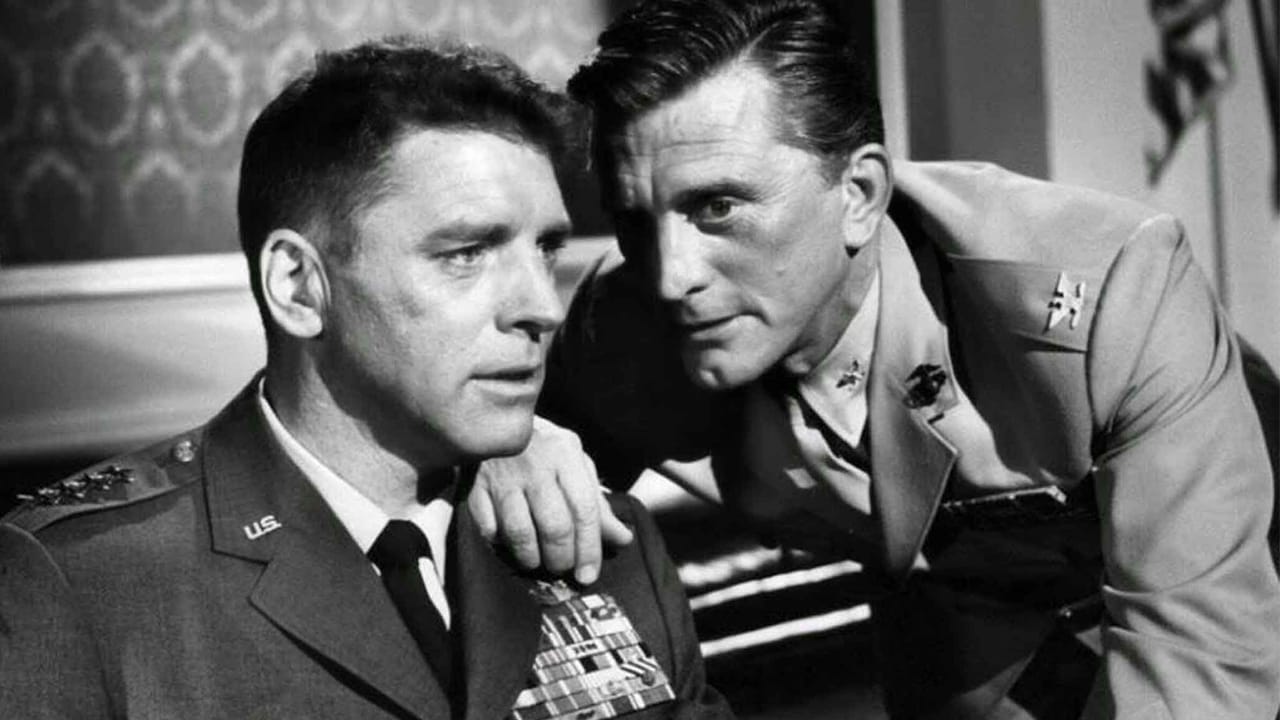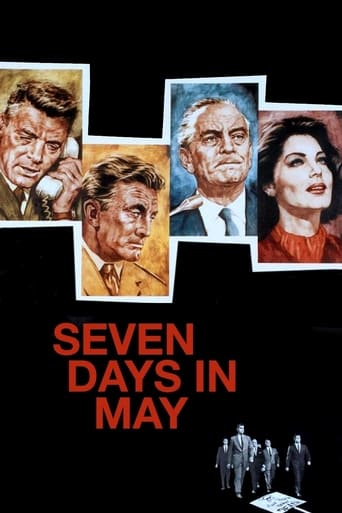

I'd have rated this a 9 in terms of actual film craftsmanship (as in the days of the circumspect classic Olympics long gone I never give 10s) but the work's utterly arrogant left-wing self-righteous misrepresentation of military preparedness utterly oblivious to history made a 9 impossible. This film shows why many (though not enough) Americans are thoughtful independents eschewing the gross, arrogant hypocrisy of both left-wing and right-wing bigotry, each fingering the other in delusions of godhood without honestly confessing its own sins; 1 John 1:7-10. While it's obvious from history, especially America's great Founders' provision of the Second Amendment and our armed forces, that lethal force was necessary, as the Bible also says in Romans 13 "for he [=the ruler] is a minister of God to you for good. But if you do that which is evil, be afraid; for he bears not the sword in vain: for he is a minister of God, an avenger for wrath to him that does evil," that nevertheless does not prevent God from ordaining their overthrow (e.g. the American Revolution) when they overstep his appointed bounds. The only hope left-wing and right-wing have (an eagle needing both wings to fly) is the fear of God that alone can sustain their understanding of their need one for the other (1 Corinthians 12). Modern godless secularism, even in the days of the making of this unreal fantasy of a film, is wholly insufficient for the task, something America's Founders understood in their stern, God-fearing warning of the certain fatality for the nation of such an abomination, as it's proved to be, the opening riot of the film being a far more accurate picture of what would have been than the actual ending.
... View MorePowerful Cold War drama.It is the height of the Cold War and the US President, Jordan Lyman (played by Fredric March) has negotiated a nuclear arms limitation treaty with the Russians. The military and some politicians are not happy with this, figuring the Russians will renege on the deal, leaving the US vulnerable. Foremost among the opponents of the treaty is General James Scott (played by Burt Lancaster), Chairman of the Joint Chiefs of Staff. On his staff is a Marine Colonel, "Jiggs" Casey (played by Kirk Douglas), who starts to suspect that the General may be planning a coup...Intriguing, entertaining drama. Mostly plausible, though there is some looseness in the plot. In addition, it demonstrates well the link between politics and the military, and who, in a democratic society, takes orders from whom.Solid performances all round. Edmond O'Brien was nominated for a Best Supporting Actor Oscar for playing the drunken-but-resourceful Senator Clark.
... View MoreThe American President Lyman (Fredric March) with low approval ratings has passed a divisive nuclear disarmament treaty. The head of the Joint Chiefs General Scott (Burt Lancaster) opposed the treaty and is organising a secret coup with some of his supporters. His aide Colonel Jiggs Casey (Kirk Douglas) informs the President of the behind the scenes manoeuvring and Lyman instructs some of his trusted men to get evidence of the conspirators plans.Director John Frankenheimer loved a conspiracy thriller. Here he paints the conspirators as misguided and maybe the President as too honourable and principled.The film contains too much talking heads at times and it suffers from it during the showdown between Lancaster and March. The President actually does come across as weak and maybe proves Lancaster's point when in reality a more forceful resolution was required by the Lyman.The film is still masterful, full of intrigue and tension but it does move slowly at the beginning and has a major flaw. If the President was unpopular how did he manage to get the Treaty ratified by Congress? As the treaty is approved by Congress then it make General Scott's action more murkier and he should had been called out more strongly for his treachery.
... View MoreSEVEN DAYS IN MAY may have seemed like "science fiction" back in 1964, but today, in 2015, it looks like nothing less than a blueprint for the political coup that began with Kennedy's assassination in 1963. (That's known as being "prescient," for those of you who didn't know...) Tapping Rod Serling to write the screenplay was a stroke of genius: from boxing (REQUIEM FOR A HEAVYWEIGHT) to Big Business (PATTERNS) to Fantasy (THE TWILIGHT ZONE) to down-to-Earth bona fide science fiction (PLANET OF THE APES), Serling was more than capable of spinning a yarn in cinematic terms, regardless of Genre. The complicity of the Media (Television in particular) and Big Business to overthrow the U.$. Government (i.e.; government of, by, and FOR The People) is highlighted in SEVEN DAYS IN MAY- exactly as it's come to pass. Says Senator Clark (Edmond O'Brien) in the movie: "This country will probably live as if peace were just as big a threat as war." How's THAT for prescient? "This one must be Deep and Dark," Lancaster tells an aide. Is it just me, or is that almost word-for-word what we heard going into Iraq the second time...? "We've all got to stay on alert these days," Whit Bissell advises, prefiguring the on-going, never ending "War on Terror." But it's Hugh Marlowe as the televangelist newscaster who sums it all up best when he says: "I'm not a lover of Communists, Socialists, or intellectual bleeding hearts. I have only one interest, and that is symbolized by the red, white and blue of our glorious flag." The camera then lingers lovingly on the faces of the fanatical followers of Lancaster before he takes the stage and promptly declares his love for the "Motherland." Shades of the Nuremberg rallies. When Martin Balsam's plane crashes, one can't help but be reminded of the documentary CONFESSIONS OF AN ECONOMIC Hit-man, in which just this kind of "accident" is detailed. March as The Pre$ident challenges Lancaster to beat him at the ballot box. "You don't steal it after midnight when the country has its back turned." The Real World parallels are obvious. The Great Disregard with which The Man (Obama, not James Earl Jones) has been treated since being elected speaks for itself.
... View More